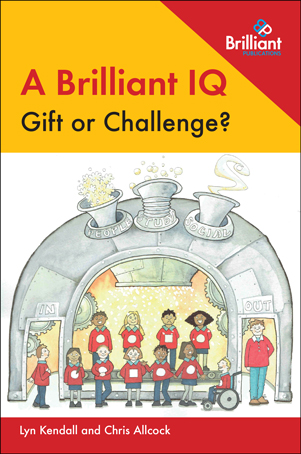The problem of brightness

What problems does having a high IQ bring to children, and how can they be best helped?
For many of us working in a primary school classroom, a fair amount of our time is spent showing children how not to make mistakes, and thus helping them to get things right.
It can therefore on occasion be something of a surprise to find that when it comes to children with a high IQ the reverse can often be true. Quite often they need to be shown that it is OK to make mistakes and that from mistakes comes further learning.
Of course, that isn’t all there is to working with children who are a long way above average when it comes to intelligence, because that intelligence will be affecting them, and sometimes in ways that can come as a surprise.
So, what problems does having a high IQ bring? There are many reports of high IQ children in primary school being deeply upset by situations they hear about in the news and which they cannot do anything about.
As adults we find ways of coping with knowing that, for example, we may have a comfortable home and enough to eat and drink, while in other countries starvation is the norm. For high IQ children this can be a novel and deeply troubling suggestion.
And of course, it is not just the high IQ child who can be deeply troubled and who needs support. For both those of us teaching such a child, and for the parents at home, the need for stimulating work at the appropriate level, is a constant theme.
Additionally, the very bright child can be bullied and find her or himself isolated from others in the class because they are seen to be different. What may seem to be the blessing of having a high IQ, can easily become a torment for the child.
Which is why we asked Lyn Kendall, Gifted Child Consultant for Mensa to write A Brilliant IQ: Gift or Challenge. Drawing on the authors’ personal experiences and professional, evidenced findings to provide accurate, practical and meaningful advice the book starts from an understanding of the way in which such children see the world, and moves on to ways in which we, as teachers, can help these children develop their full potential within this world.
Whilst unpicking many misconceptions about what it means to have a high intellect, the book also discusses the opportunities and advantages of being bright, and ways to ensure bright sparks grow up to become well-adjusted adults.
The book thus considers both the emotional, physical and social challenges of a high IQ to the child as well as the ways in which teachers can help and support the child at school – and also give help and support to concerned parents.
You can see extracts from this unique book on our website – you’ll find them in the “Try before you buy” section.
